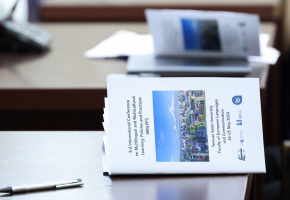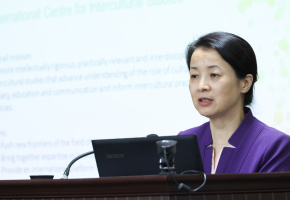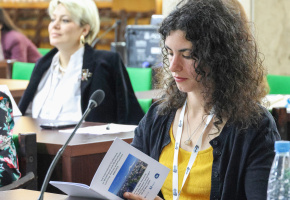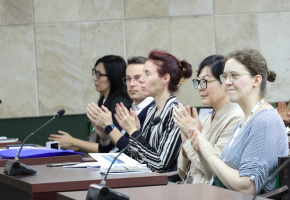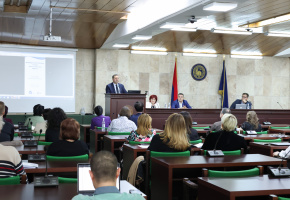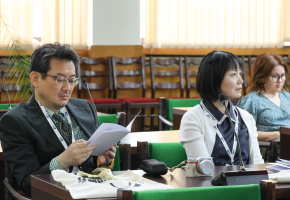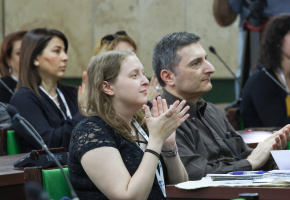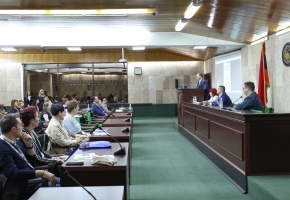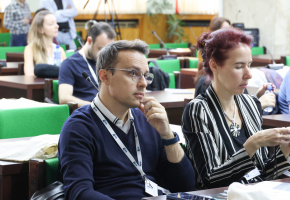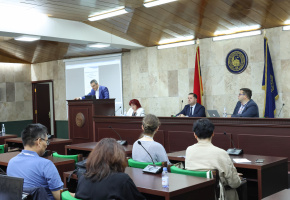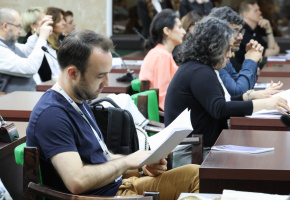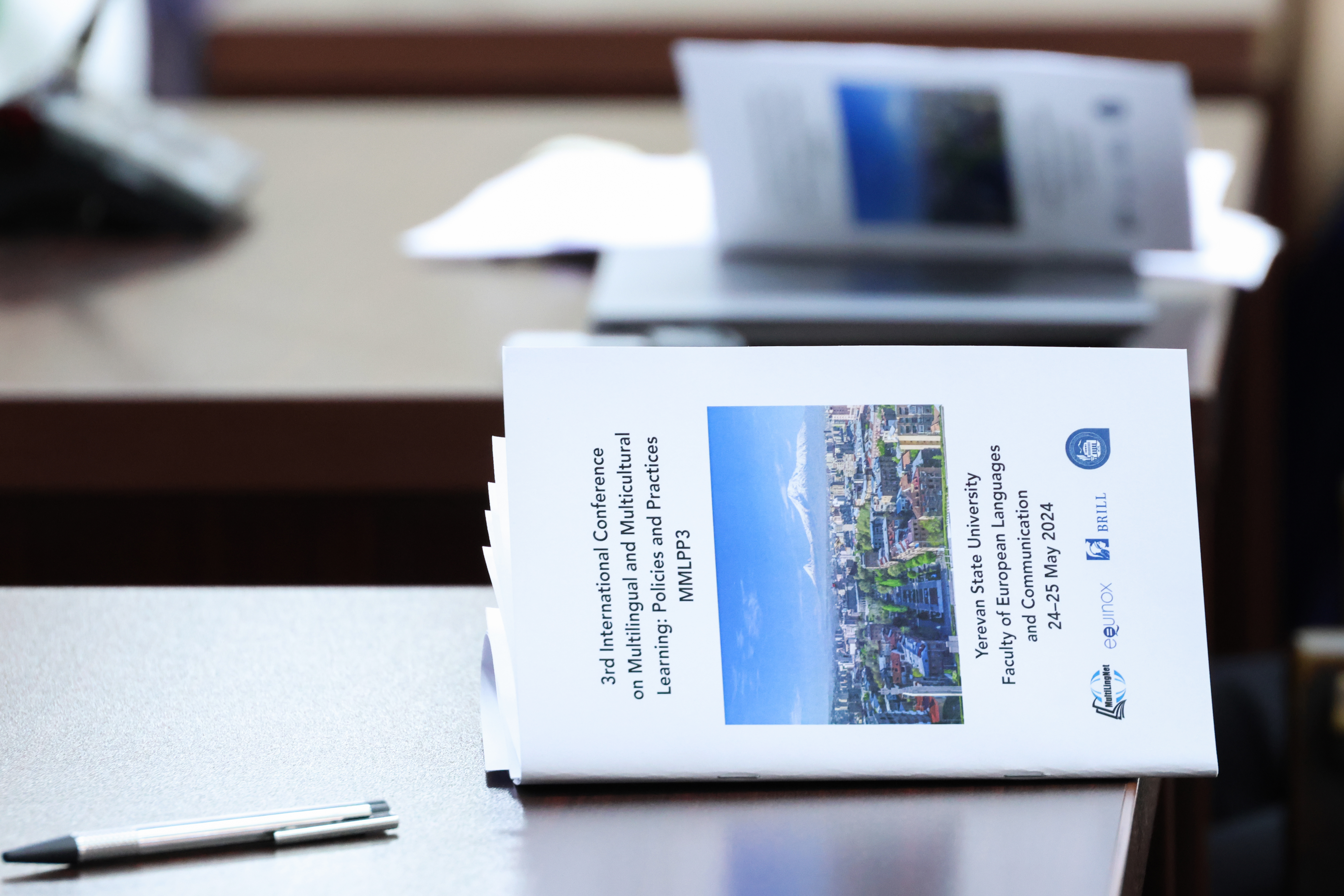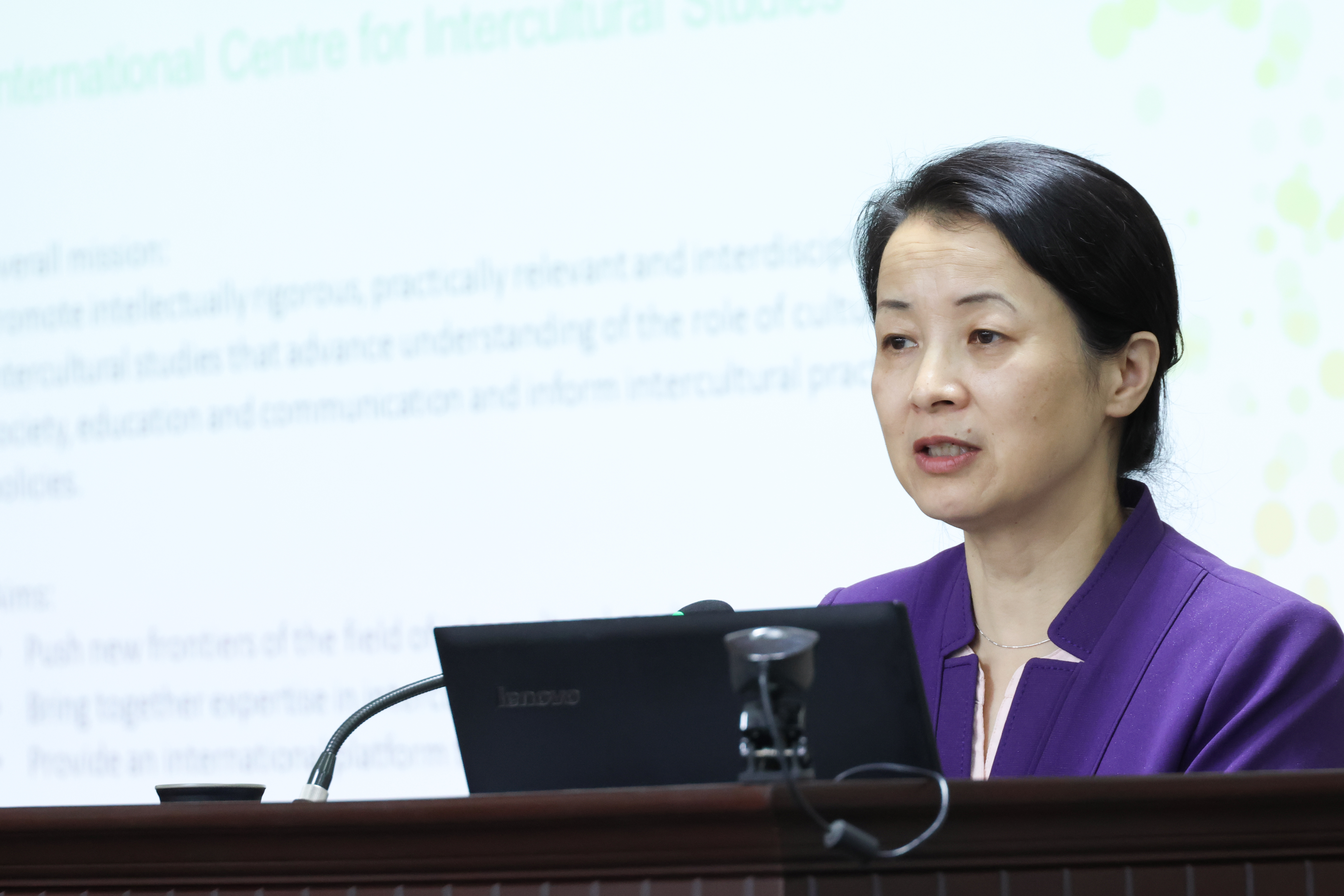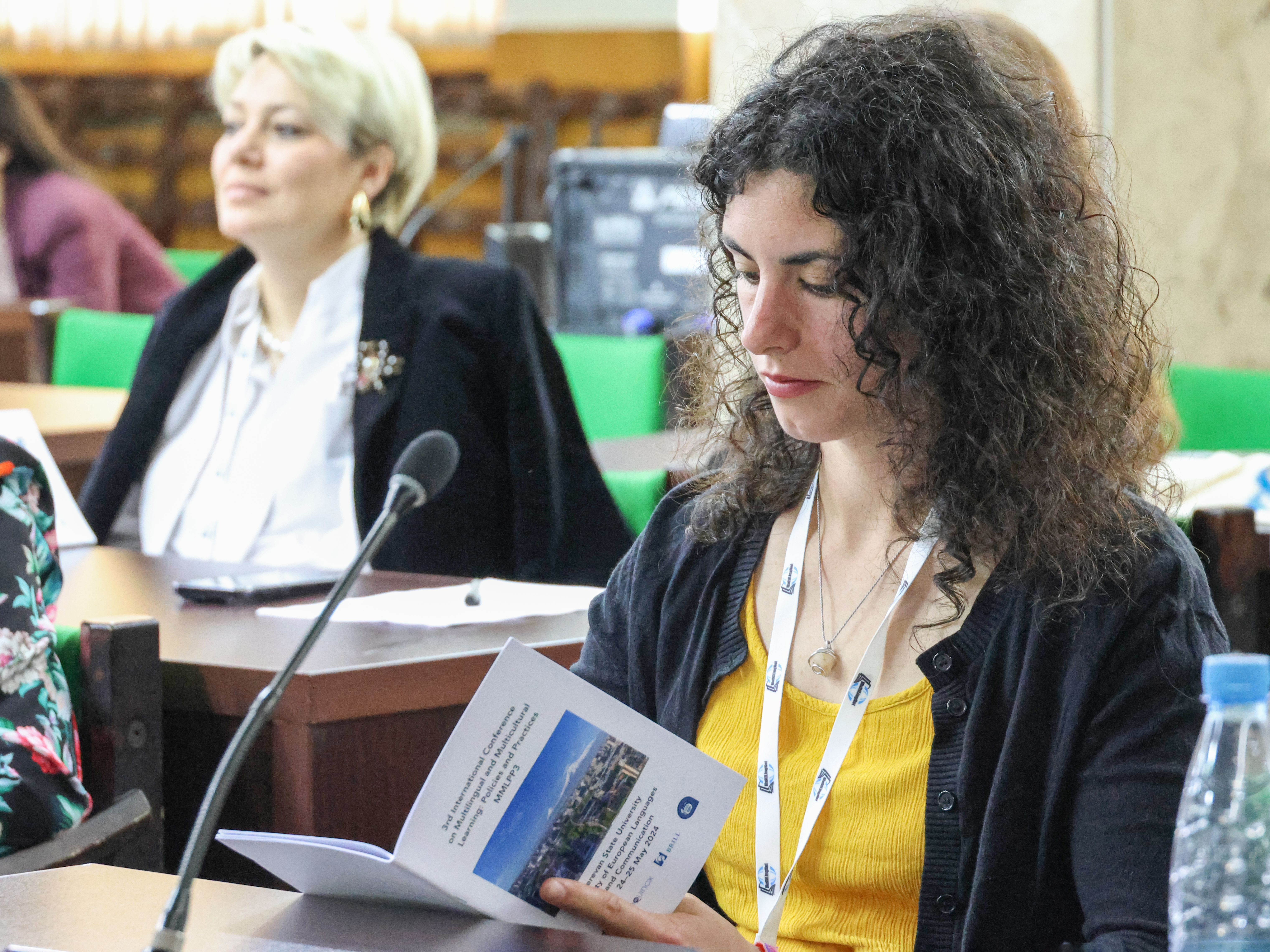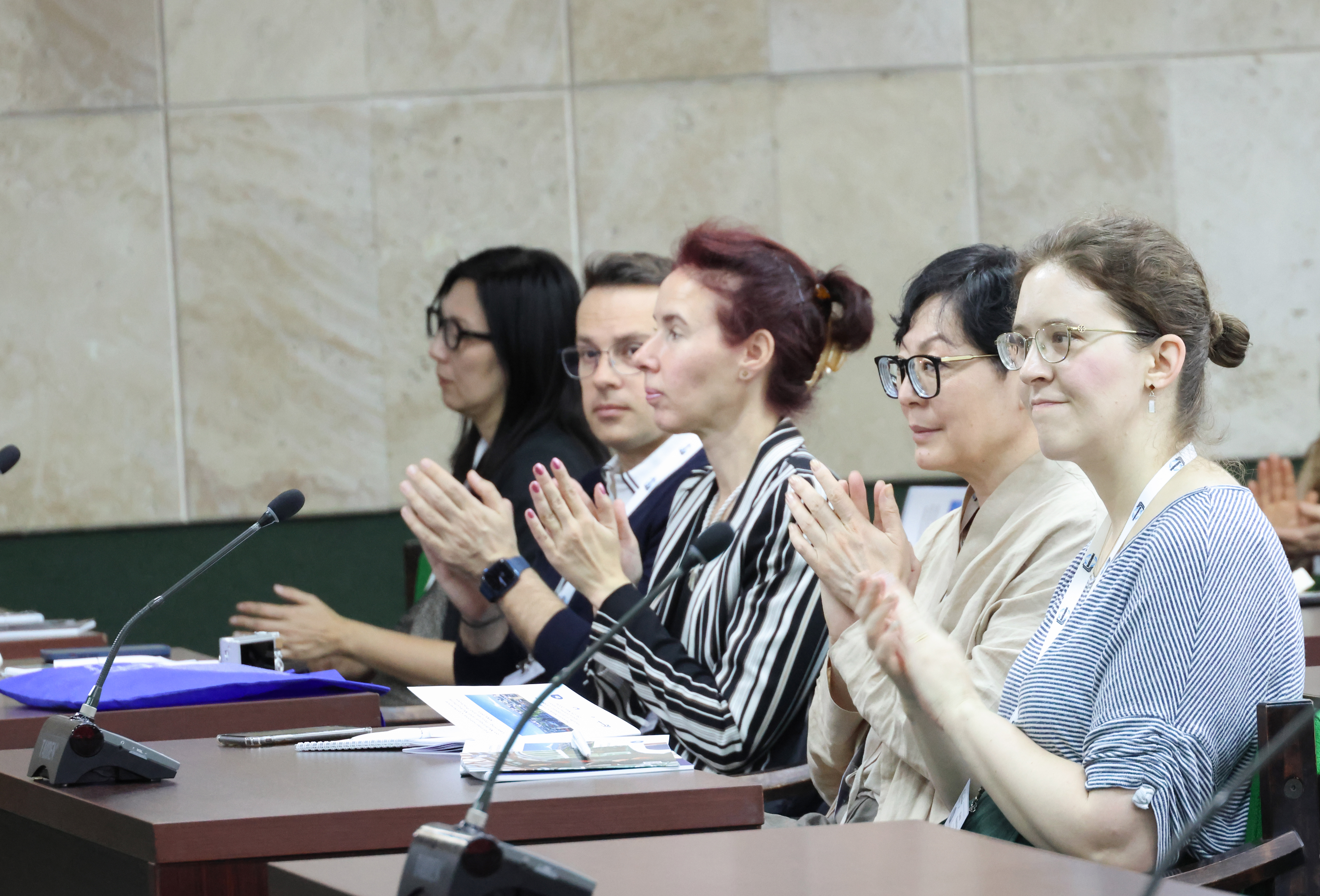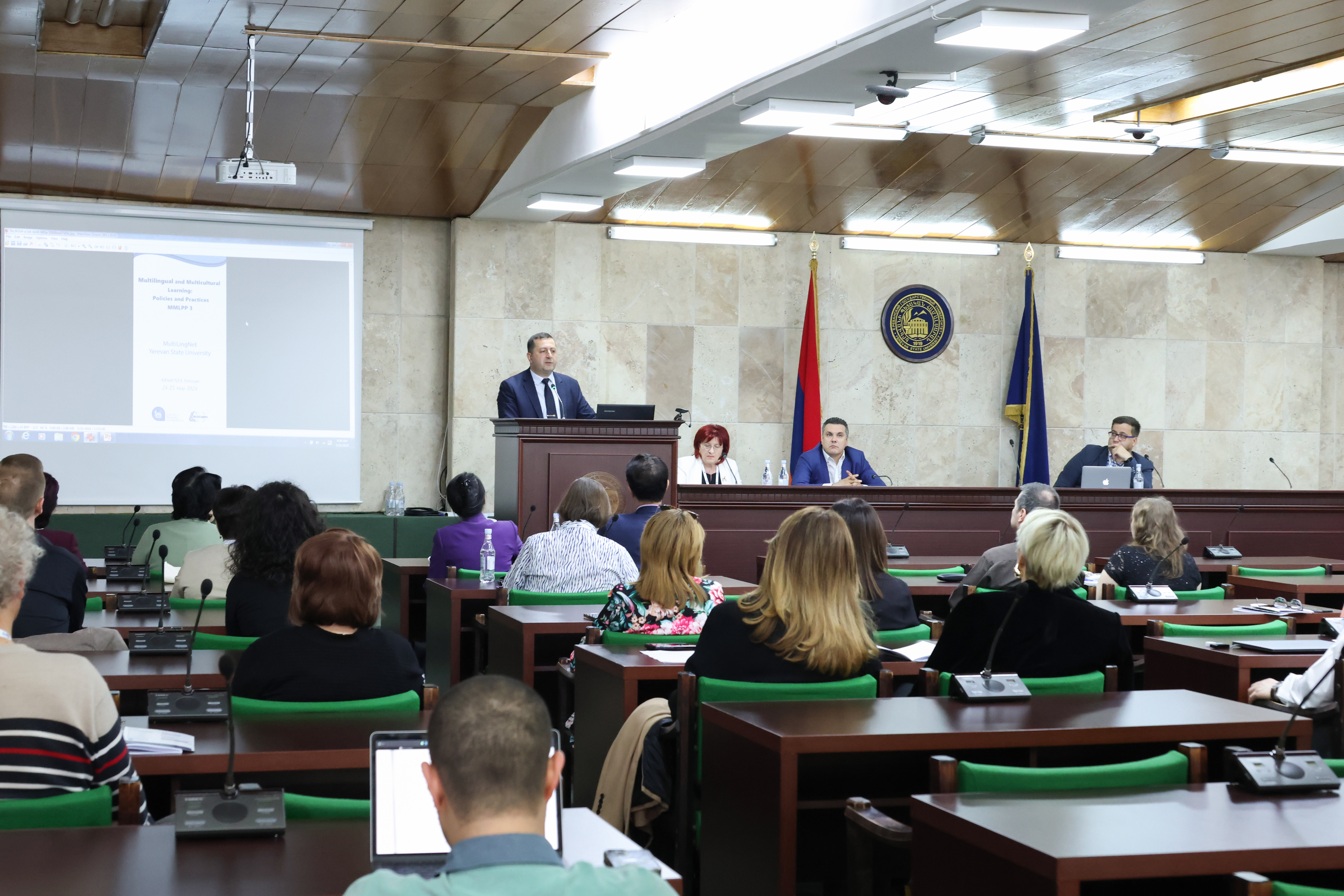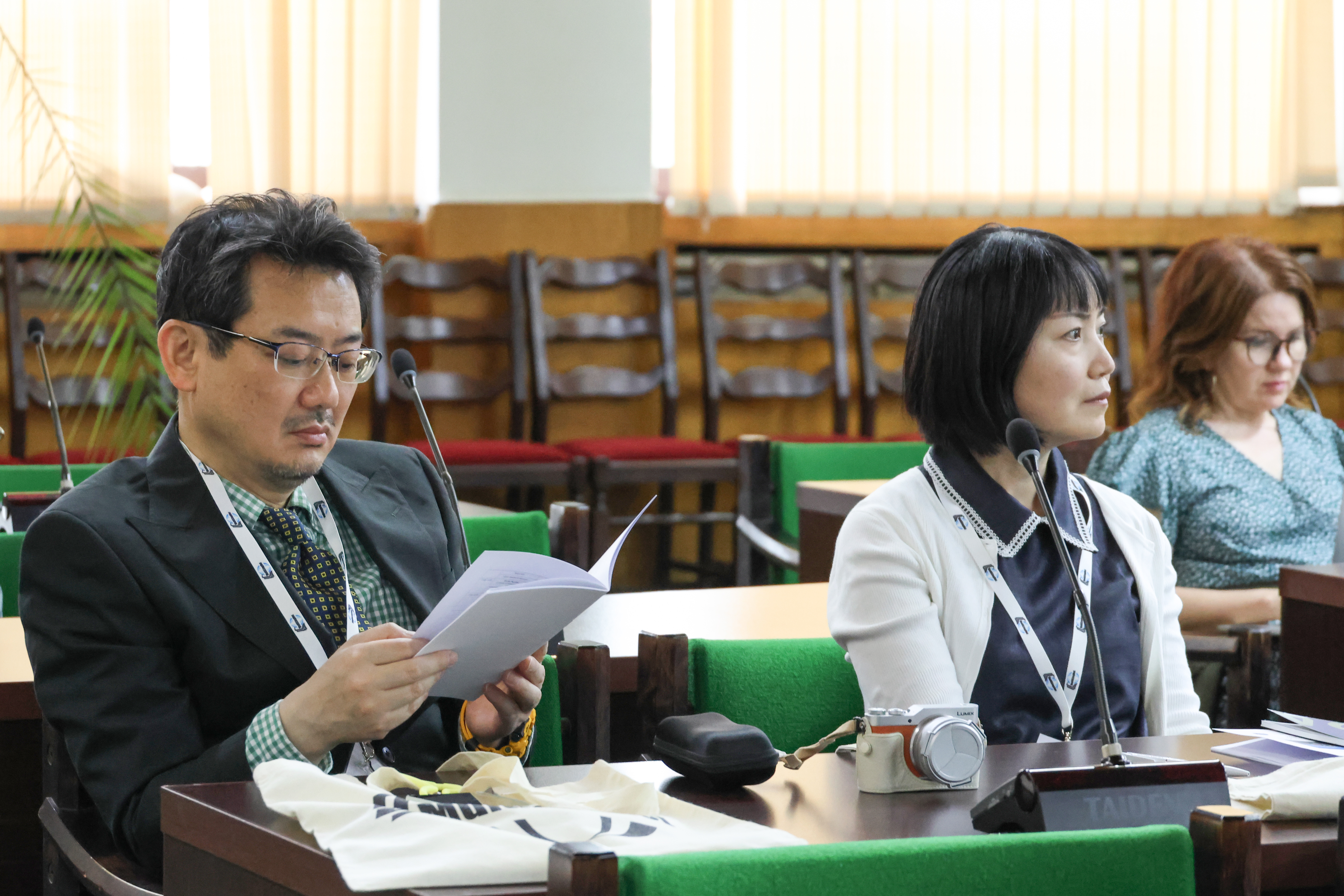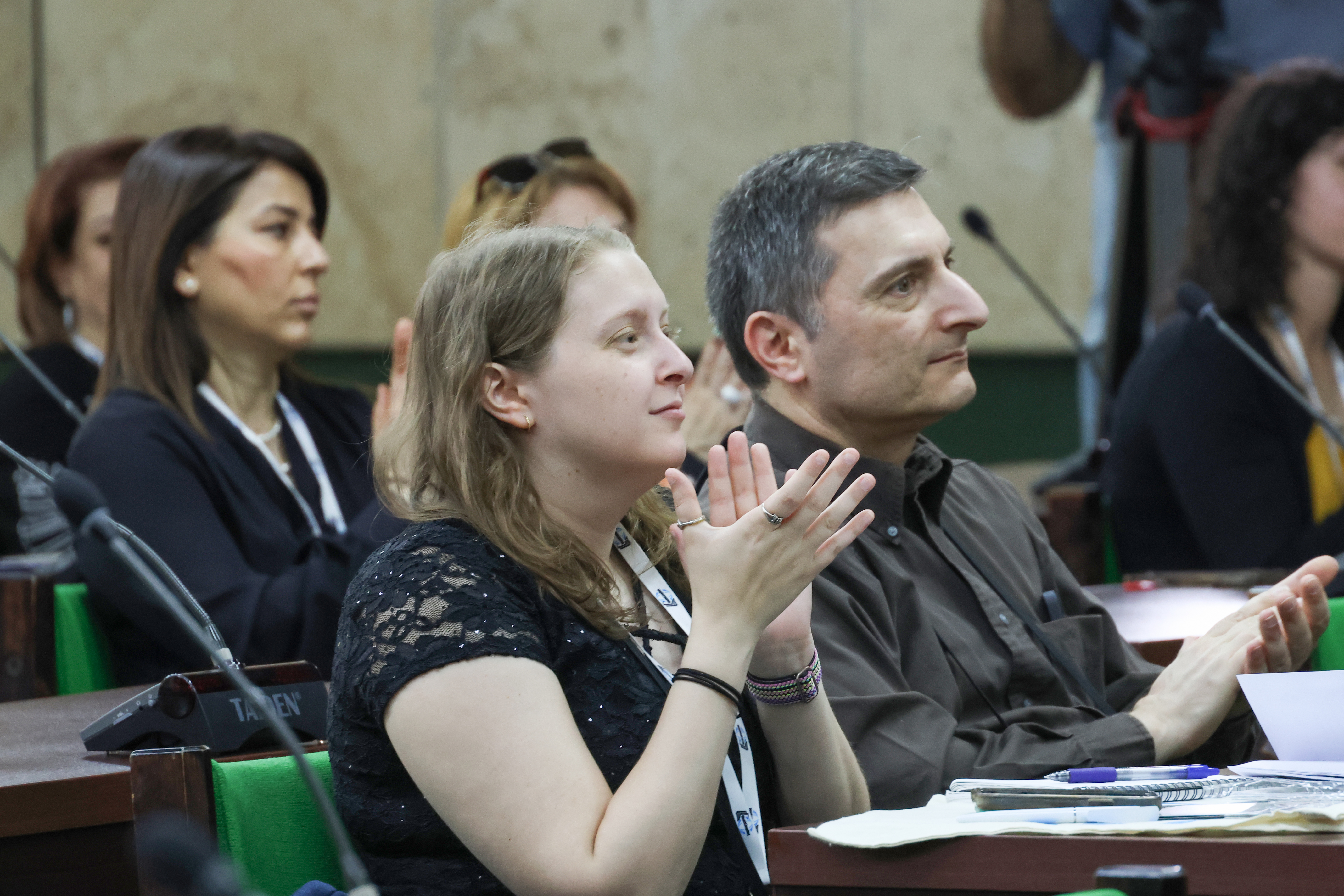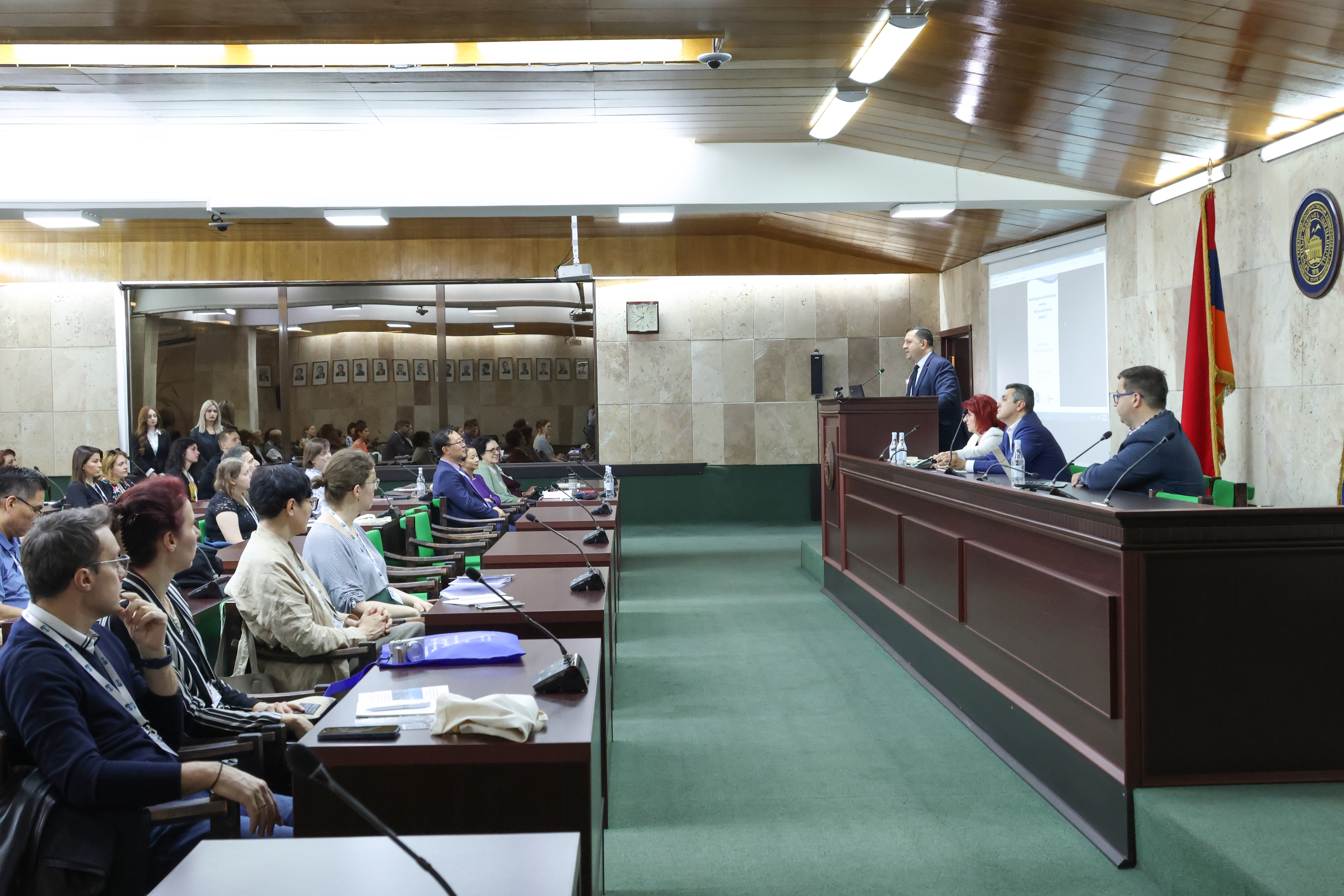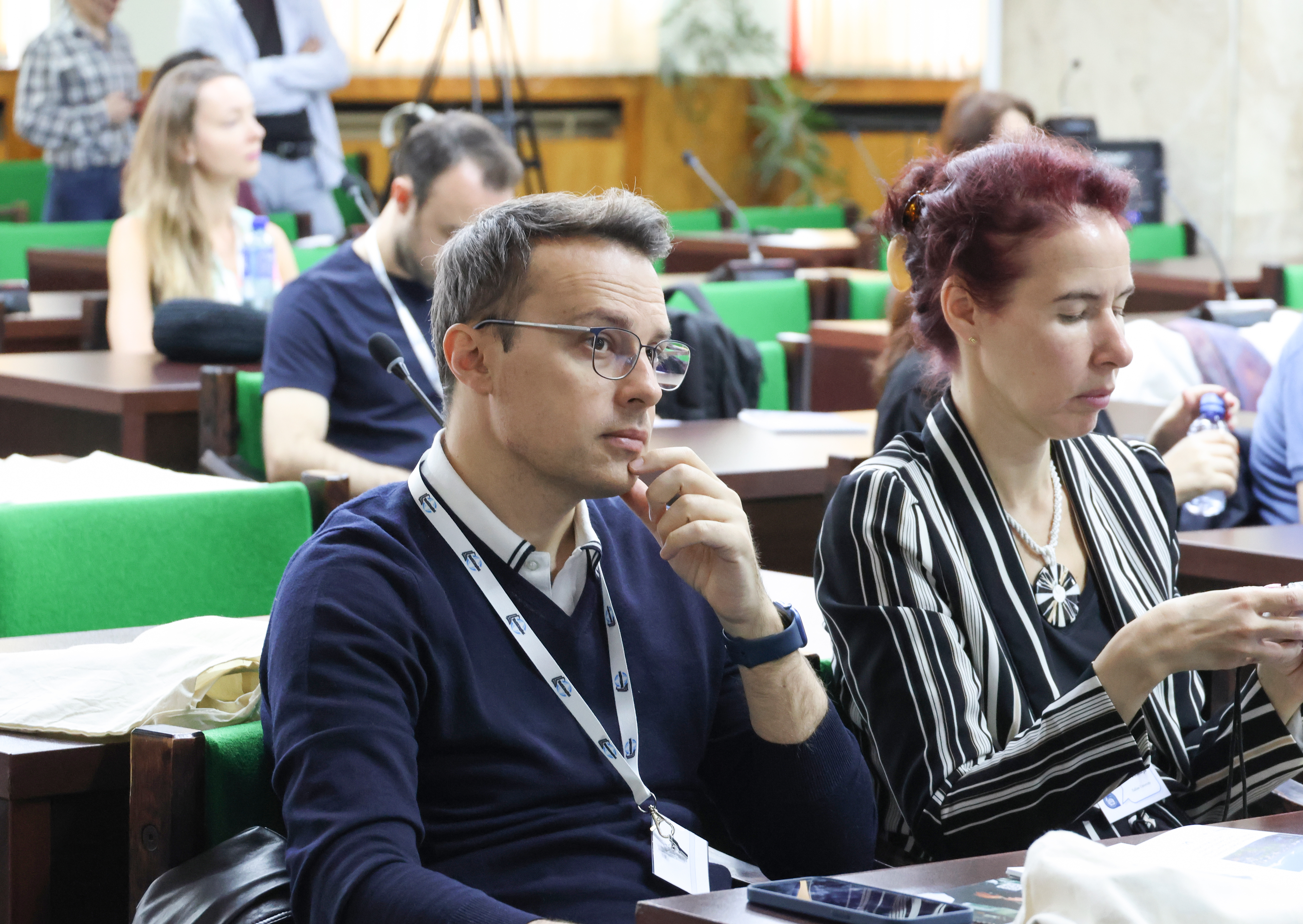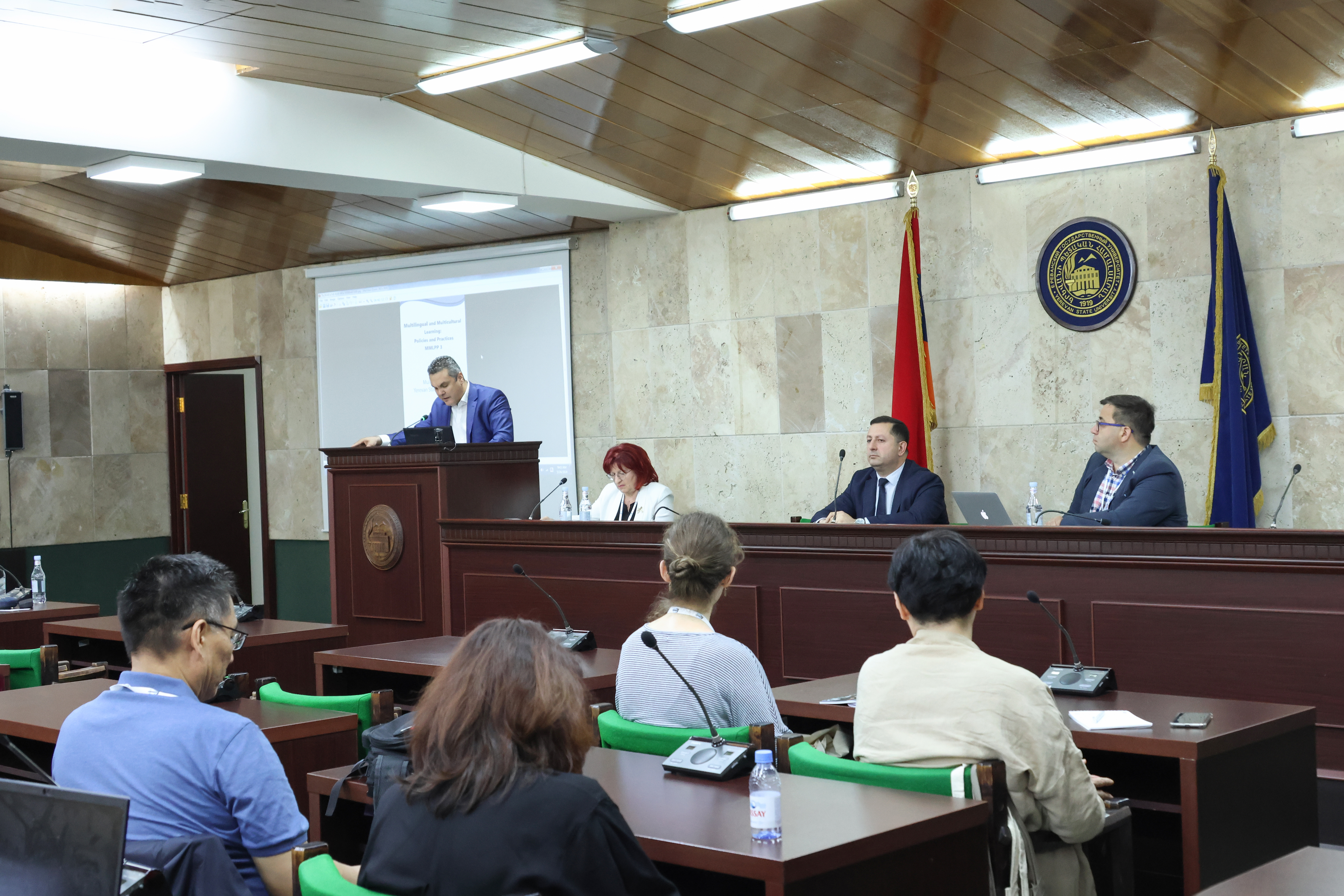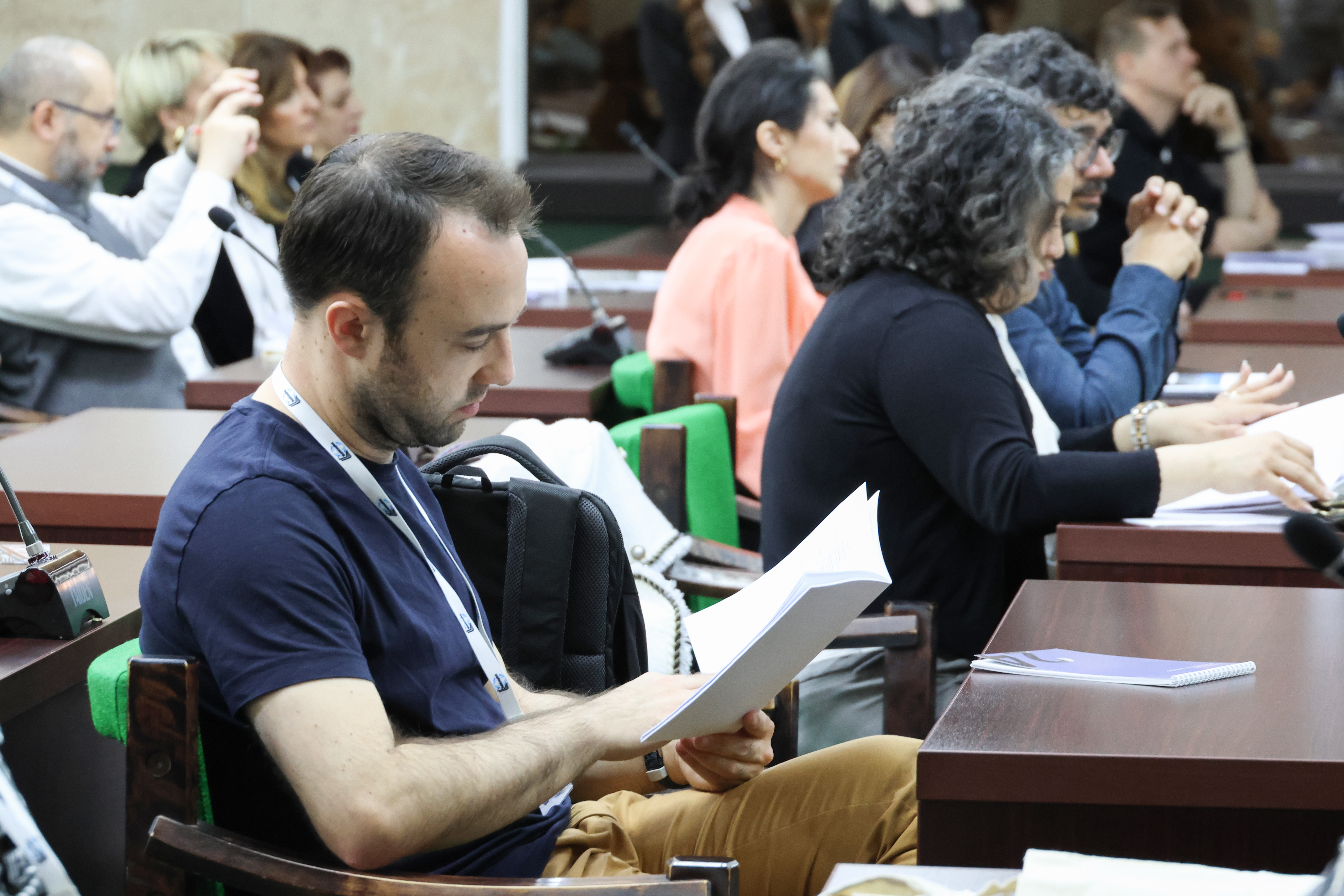May 27, 2024 | 12:29
Science
Conferences
Education
Two-day international conference on multilingual and multicultural learning held at YSU
From May 24-25, this year, the English Chair of Cross-Cultural Communication at the YSU Faculty of European Languages and Communication, in collaboration with the MultiLingNet International Association, hosted the international conference titled "Multilingual and Multicultural Learning: Policies and Practices".
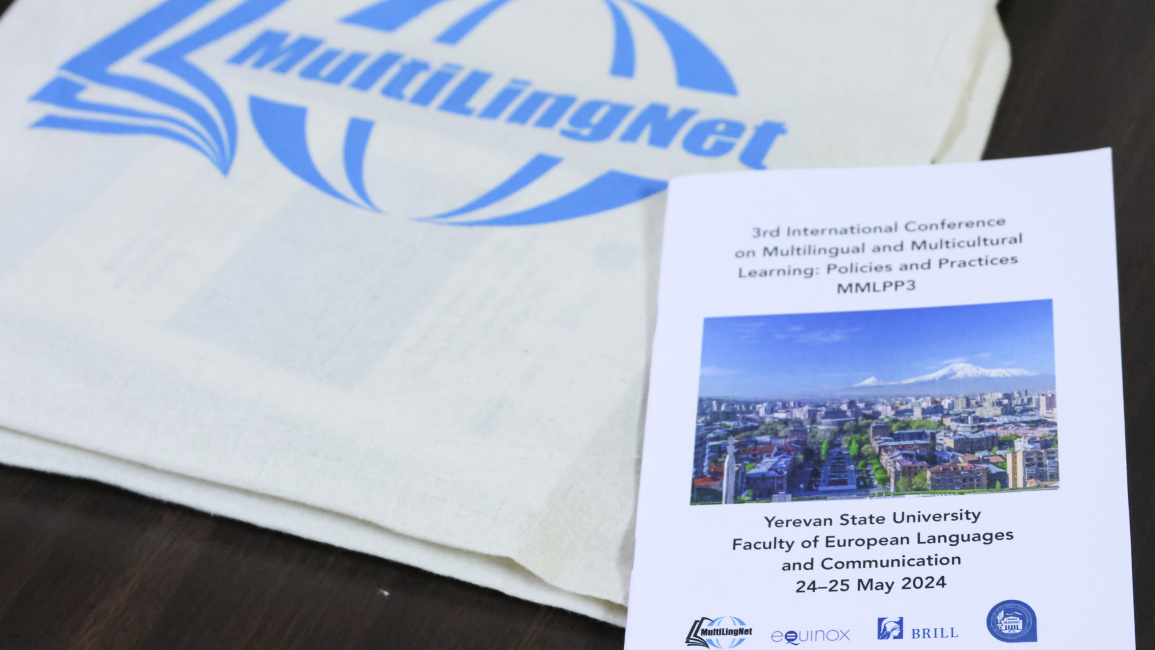
In the conference held at the YSU Academic Council Session Hall, around 30 specialists from leading universities and scientific institutions worldwide, including those from England, Japan, France, Germany, Canada, the United States of America, Cyprus, Norway, Portugal, and several other countries, participated. Notably, linguists from University College London and the University of Oslo delivered reports.
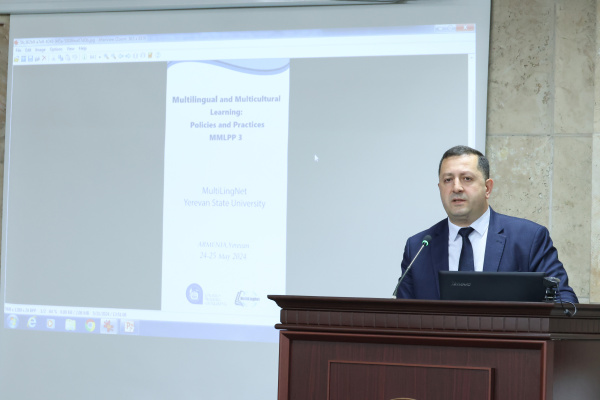
YSU Rector Hovhannes Hovhannisyan emphasized the significance of hosting the event at Yerevan State University, stating: "Various international conferences, seminars and other scientific events are always the center of YSU's attention. Prioritizing the internationalization process of YSU, we are glad to host such an international conference at Yerevan State University. One of our primary goals is the development of students' language skills. YSU is active in many scientific and educational fields, participating in the Erasmus+ and various other international programs.
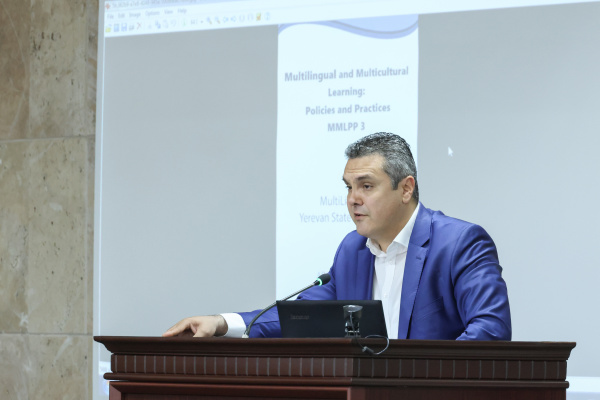
Gevorg Barseghyan, Dean of the YSU Faculty of European Languages and Communication, highlighted: "The conference brought together the world's leading linguists and literary scholars, who keep in the spotlight the new opportunities and prospects for cooperation in the field of multilingual and multicultural learning, as well as finding solutions to linguistic, socio-political and cultural problems. I am sure that through our discussions and deliberations, we will discover the interesting connection between language and culture, as well as explore how policies and practices can contribute to the creation of an inclusive and educational environment.
Dr., Professor Shushanik Paronyan, Head of the English Chair of Cross-Cultural Communication at the YSU Faculty of European Languages and Communication, speaking about the topics of the reports, pointed out that they all refer to the problems of multilingual and multicultural learning, with the focus on the correlation of language and culture.
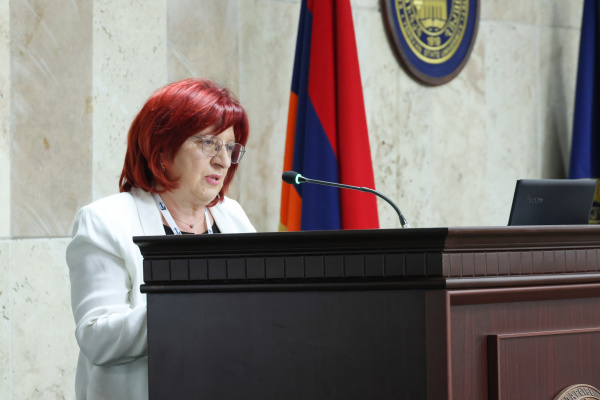
"Teaching English as a foreign language, as well as preserving the national language and identity in multilingual and multicultural societies, were at the core of the discussion. About 40 reports were presented, covering diverse topics such as the utilization of artificial intelligence in educational settings as it plays a pivotal role in teaching English as a foreign language. Additionally, reports were presented about the use of Mongolian in Japan, as well as the features and problems of multilingual and multicultural learning," noted Shushanik Paronyan. She also emphasized that English has become the language of international communication, displacing many languages such as French, German, Spanish, and others spoken widely, as well as those spoken by smaller populations, from significant domains of use.
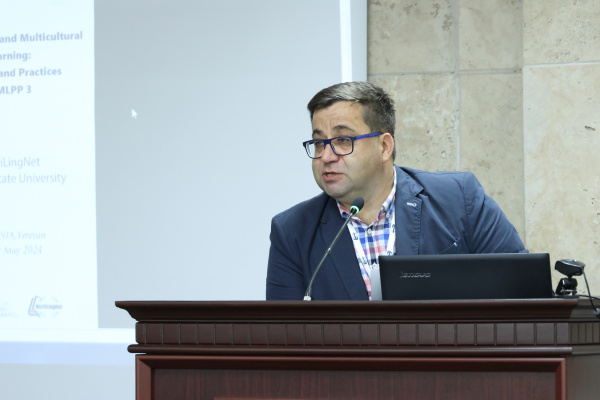
Piotr Romanowski, Founder of the MultiLingNet International Association, Professor at the University of Warsaw, speaking about the relevance of the topic and the linguistic and cultural changes occurring in his country, said: "Our goal today is to be multilingual and multicultural. Currently, it is impossible to find a society that communicates in only one language. Following the Second World War, Poland, for instance, was a mono-ethnic country, but the global events led to the formation of a multicultural society. Particularly in the last two years, there has been a large flow of immigrants from Ukraine; 8 million Ukrainians passed through Poland, while 3 million settled there. It’s worth noting that our university also hosts numerous Ukrainian students. At the conference, we underscored the importance of multilingual learning and explored the sociolinguistic aspects of multilingualism."
It is important to note that conference participants also delved into current challenges regarding the implementation of correct and reasonable multicultural education policies in academic institutions, as well as teaching English as a foreign language.
For further details, watch the video.
